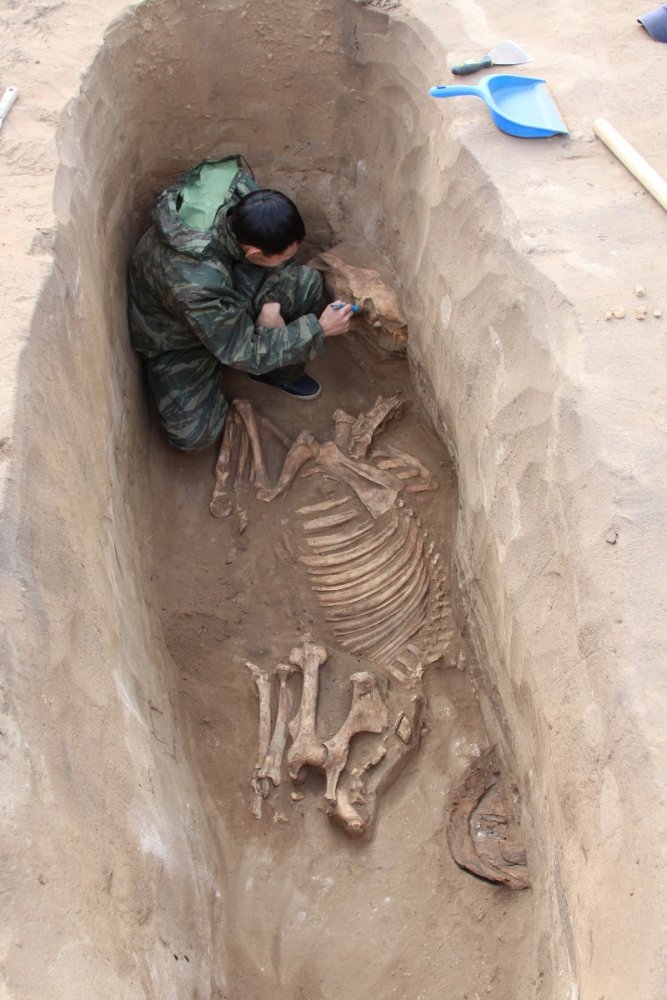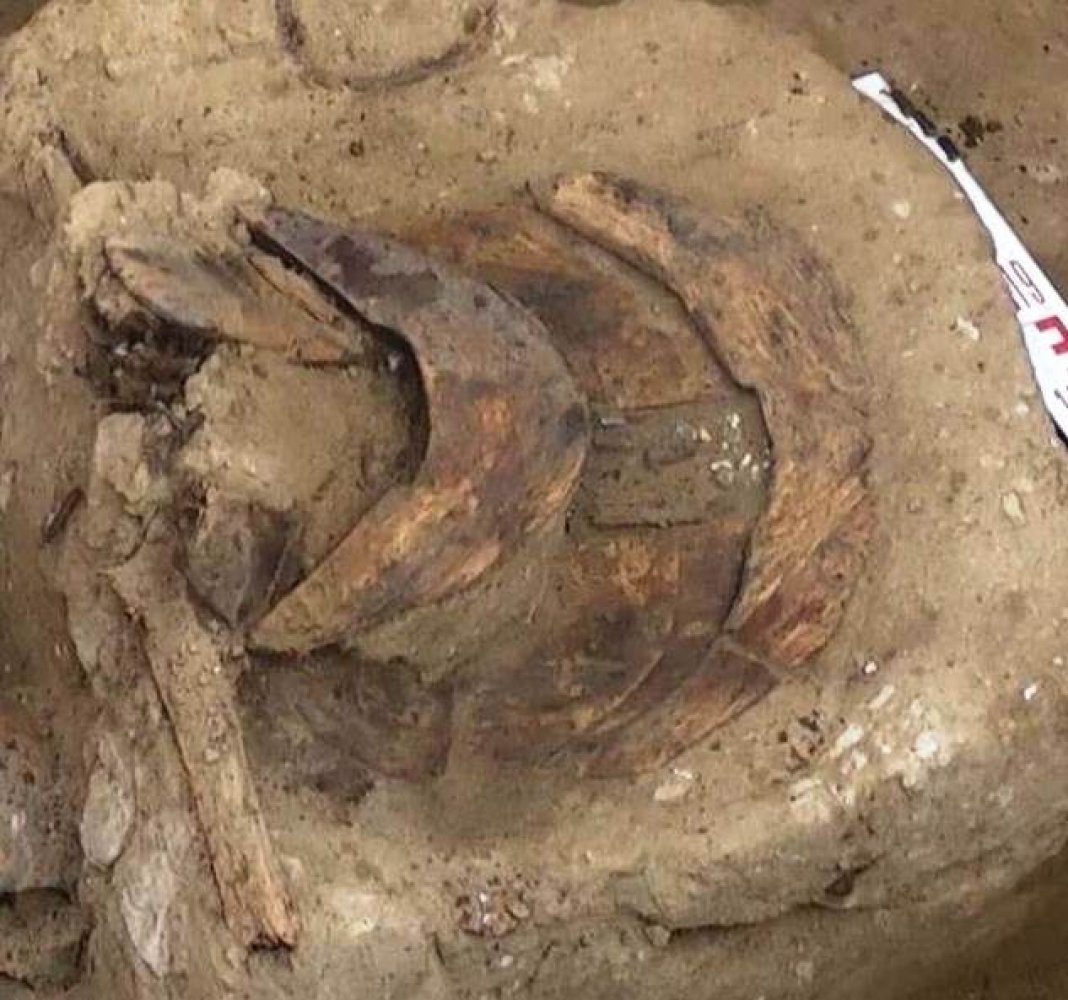An ancient warrior’s tomb has been discovered near Pavlodar,
Tengrinews reports citing the head of the archaeological expedition Timur Smagulov.
The tomb of the warrior of noble birth was discovered by the group Pavlodar archaeologists near Kenzhekol village. The tomb is dated 10-12 centuries A.C.. The discovery contains remains of man, horse, fragments of birchbark cocker, arrowheads, bronze buckles and wooden dishes.


“The warrior buried in the mound must have been from among the nobles of the Kimak community. The high status of the warrior is certified by the remains of the gravestone made of sun-dried earth bricks. Similar structures were found at tombs of other famous nomads,” Timur Smagulov said.
According to him, the presence of the sun-dried earth architecture certifies that the Kimaks had developed construction skills. According to Timur Smagulov, the tomb is yet another argument that confirms the hypothesis of Kazakhstan scientists that there was the city culture in the area in those day and that the political center of the Kimak Kaganate was located near the Irtysh River.
The wooden saddle found in the mound sparked the most interest of the archaeologists. “Such discoveries are very rear in the mounds of Kimak-Kypchak period, as wooden items rarely survive through the years in the soil and get into the hands of archeologists. Thanks to this discovery, we will be get a better idea of the outfits of Kimaks’ horses and the evolution of horsemen’s attributes in the culture of the ancestors of the contemporary Kazakhs,” Timur Smagulov said.
The mound was initially discovered in 1055. Decades later it happened to be in a construction area. And a special scientific expedition of archeologists and students of Pavlodar Pedagogical Institute and Margulan Archaeology Institute was formed to save the unique heritage and excavate the mound.

 “The warrior buried in the mound must have been from among the nobles of the Kimak community. The high status of the warrior is certified by the remains of the gravestone made of sun-dried earth bricks. Similar structures were found at tombs of other famous nomads,” Timur Smagulov said.
According to him, the presence of the sun-dried earth architecture certifies that the Kimaks had developed construction skills. According to Timur Smagulov, the tomb is yet another argument that confirms the hypothesis of Kazakhstan scientists that there was the city culture in the area in those day and that the political center of the Kimak Kaganate was located near the Irtysh River.
The wooden saddle found in the mound sparked the most interest of the archaeologists. “Such discoveries are very rear in the mounds of Kimak-Kypchak period, as wooden items rarely survive through the years in the soil and get into the hands of archeologists. Thanks to this discovery, we will be get a better idea of the outfits of Kimaks’ horses and the evolution of horsemen’s attributes in the culture of the ancestors of the contemporary Kazakhs,” Timur Smagulov said.
The mound was initially discovered in 1055. Decades later it happened to be in a construction area. And a special scientific expedition of archeologists and students of Pavlodar Pedagogical Institute and Margulan Archaeology Institute was formed to save the unique heritage and excavate the mound.
“The warrior buried in the mound must have been from among the nobles of the Kimak community. The high status of the warrior is certified by the remains of the gravestone made of sun-dried earth bricks. Similar structures were found at tombs of other famous nomads,” Timur Smagulov said.
According to him, the presence of the sun-dried earth architecture certifies that the Kimaks had developed construction skills. According to Timur Smagulov, the tomb is yet another argument that confirms the hypothesis of Kazakhstan scientists that there was the city culture in the area in those day and that the political center of the Kimak Kaganate was located near the Irtysh River.
The wooden saddle found in the mound sparked the most interest of the archaeologists. “Such discoveries are very rear in the mounds of Kimak-Kypchak period, as wooden items rarely survive through the years in the soil and get into the hands of archeologists. Thanks to this discovery, we will be get a better idea of the outfits of Kimaks’ horses and the evolution of horsemen’s attributes in the culture of the ancestors of the contemporary Kazakhs,” Timur Smagulov said.
The mound was initially discovered in 1055. Decades later it happened to be in a construction area. And a special scientific expedition of archeologists and students of Pavlodar Pedagogical Institute and Margulan Archaeology Institute was formed to save the unique heritage and excavate the mound.

